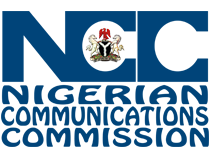The Commission also called on debtor operators to settle interconnect debts owed their creditor networks without further delay to prevent possible revenue drop and customer flight from their networks to competitors.
The Executive Vice Chairman of the Commission, Prof. Umar Danbatta, who stated this in Abuja said, as a consumer-centric telecoms regulatory authority, the NCC is keen on ensuring that the consumers continue to enjoy uninterrupted service while efforts are being made to address the issue of indebtedness in the industry.
Danbatta stated that the issue of interconnection is a matter that the Commission is handling delicately within the purview of the regulatory provisions to protect consumers by ensuring that their quality of experience (QoE) is not acutely affected.
The EVC said while regulatory approval on permission for disconnection was granted to creditor networks late last year, as a last resort towards resolving the huge interconnection debts threatening the health and sustainability of the industry, the Commission is ensuring that no telecoms subscriber is disconnected.
“Though the Commission granted approval to MTN’s request to disconnect debtor networks from its network in line with Section 100 of the Nigerian Communications Act (NCA) 2003, the Guidelines on Procedure for Granting Approval to Disconnect Telecommunications Operators, 2012 and other regulatory instruments, what is happening now is that the creditor networks are restricting certain services to their debtor networks in form of one-way disconnection.
“It is one-way disconnection because, as a Regulator, we prevented total disconnection; not doing that would be frustrating for the consumers. So, we have ensured that subscribers on the affected debtor networks are able to receive calls and text messages from creditor networks. This means they might not be able to make seamless calls or send text messages to the creditor’s network at all times because of restriction of access to debtor networks, pending when satisfactory payment plans are reached with respect to the Interconnect indebtedness. This is to prevent further accumulation of interconnect debt by the debtor networks,” he said.
Danbatta, who frowned at the slow pace at reaching settlement over undisputed interconnect bills among the affected operators, said with over 90 per cent of pre-paid customers on mobile networks, “operators have no reason not to be settling their interconnection bills as and when due.”
Consumers experiencing such difficulty in reaching certain networks could also use alternative lines bearing in mind that Nigeria is a multi-SIMing telecoms market.”
“You will recall that in the Pre-Disconnection Notice issued last year on December 18, 2018, we gave another period of between 10-21 days for the debtors (depending on whether they are service networks or exchange operators) to pay, so as not to lose their interconnection rights. We had expected that as responsible business entities, the debtor companies will either pay up or agree satisfactory payment plans with their creditors. But it appears no agreeable settlements plans have been reached after the expiration of the deadline, leading to the creditor’s decision to go ahead with the execution of the one-way disconnection, as permitted by the NCA Act 2003, which is what some subscribers are currently experiencing.”
Meanwhile, Danbatta while assuring the Nigerian citizens and telecoms consumers that the issue will soon be resolved, expressed the commitment of the Commission to ensure respite comes the way of the consumers soon.
“As regulator, our central role is to protect the consumers and ensure sustainability of the telecom industry through creating a level-playing field for all the licensees such that no operator is allowed to undermine the operations of another licensee in a way that is capable of negatively impacting on the health of the industry.
“The NCC is on top of the situation to ensure measures are taken as soon as possible to address the concerns of the affected telecoms consumers. Allowing interconnect debts among licensees to accumulate without ensuring settlement is dangerous for our industry and for the telecoms consumers. The ongoing regulatory intervention is a consumerist move on our part as a regulator and we appeal to telecoms consumers for their understanding as we work with operators to resolve the matter,” Danbatta said.

